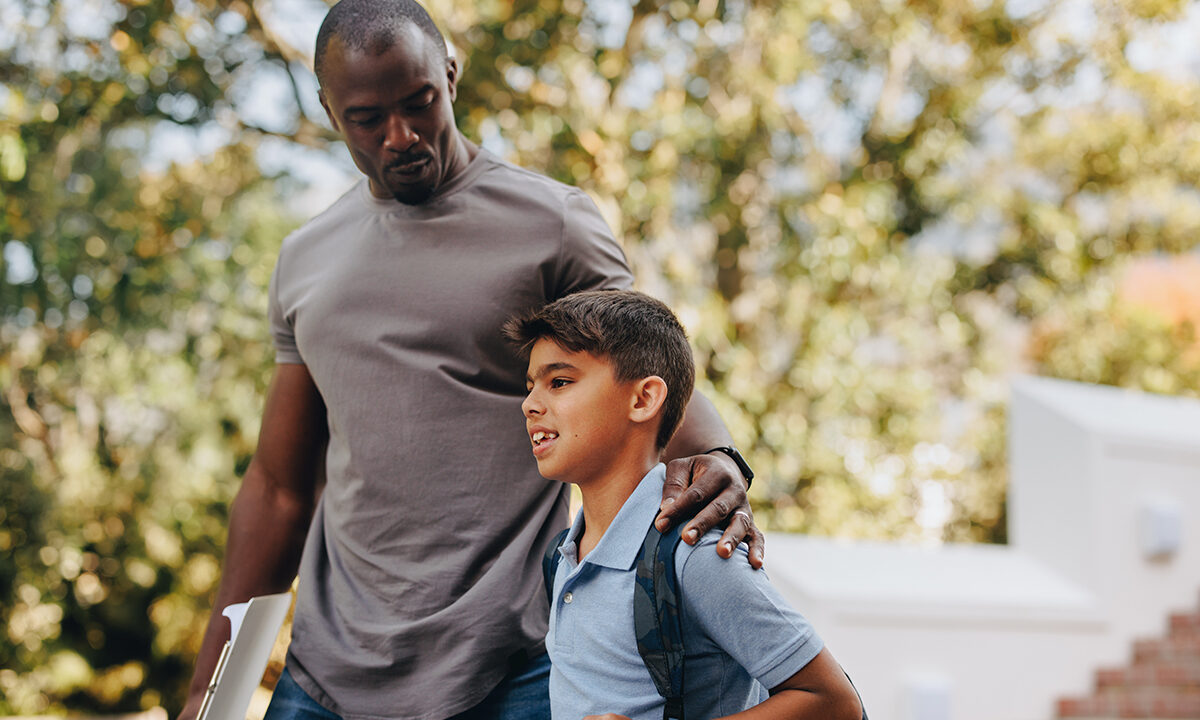In an increasingly complex world, one of the most challenging tasks parents can face is discussing safety with their children. From news reports to video games, kids are increasingly exposed to various forms of violence as they get older. This exposure can lead to confusion, anxiety, and fear. Having open and age-appropriate conversations can help children better understand these topics and even empower them to cope with their emotions and fears effectively.
Below, we’ve gathered some key strategies that parents and mentors can use when discussing violence and safety with their kids.
Choose the Right Time
Before you jump in, we recommend finding a quiet setting not only where your child feels comfortable but also where there are few to no distractions. Choose a time when you are both able to fully focus on the conversation, so your child knows its importance. Reassure them that they are safe and loved, emphasizing that your goal is to help them better understand how they can stay safe in uncertain situations.
Be Honest but Age-Appropriate
Be sure to tailor the language you use to your child’s age and developmental stage. Using simple and concrete terms to explain gun violence can help them to understand the concept without being overwhelmed or zoning out. For example, you might say, “Sometimes, people use guns to hurt others, and that can be very scary.”
Be honest with your children about the existence of violence in your local community, state, country, and world as a whole. Help them understand that gun violence is a complex issue that can happen in different places, such as schools, communities, or public spaces. Explain to them that while these events are rare, it’s essential to know what to do to stay safe.
Provide age-appropriate information and answer any questions they have truthfully, while also avoiding any graphic or disturbing content.
Focus on Safety Measures
Putting in place safety measures to fall back on whenever your children feel unsafe can be reassuring. Discuss with them the importance of staying calm, finding a safe place to hide, and seeking help from a trusted adult.
If your child’s school or community has specific safety protocols in place, explain these procedures in a clear and reassuring manner. Practice drills at home to help your child feel more prepared and confident in case of an emergency. Remind your children that they can always come to you with any questions or concerns about safety, encouraging them that you’re always there to listen and offer them support.
Encourage Empathy
When discussing the impact of gun violence on individuals and communities, help your children develop empathy and compassion for those who have experienced it. Encourage them to think about ways they can show kindness to others and promote safety in their own community.
Ask for Help
If your child shows signs of anxiety or fear related to safety, crime, or gun violence, consider seeking support from a trusted source in your family, community, or even a professional who specializes in working with children.
Our Advocate Mentors are there for the kids in our program, no matter what fears they have or events they experience. If ever you want to speak with one of our Advocate Mentors about the topic of safety, please reach out to us.
